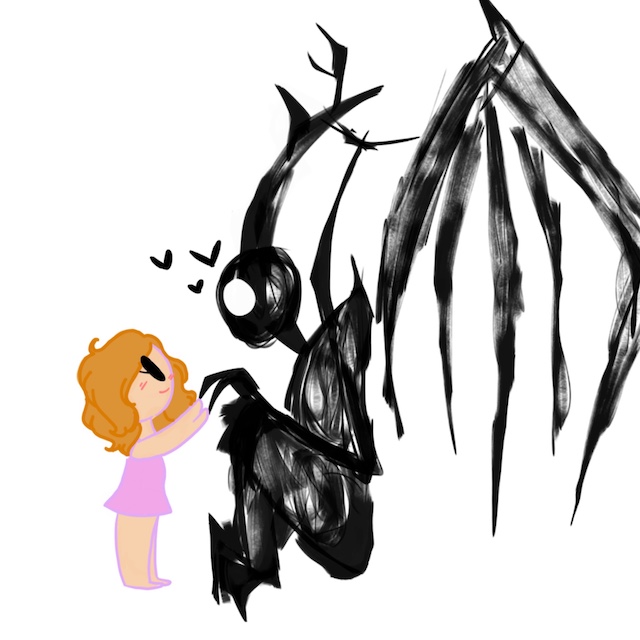Massive advances in science and technology have proven our creativity and potential to be quite limitless.
From the palm of our hand, we can experience alternate realities. We can connect instantly with anyone, anywhere in the world. With a push of a button, we can share content that has the potential to be seen by millions.
Alone with our phones, critics will argue that we are more connected than at any point in our history.
At the same time, statistics will show that more people are experiencing the devastating effects of depression and anxiety than at any point in our history.
We are in an alternate reality of connectedness. In actual reality, we are more disconnected than ever; from ourselves, each other, and the world around us.
The numbers are staggering, especially among our children and adolescents.
Did you know:
>> Suicide is the second leading cause of death among 10-24 year olds.
>> 1 out of 5 people suffer from mental illness in a given year.
>> Globally, 800,000 people die by suicide each year.
>> Half of all adolescents will participate in self-injury. Out of that number, 70 percent will attempt suicide at least once.
>> 70 percent of children in juvenile detention centers have been diagnosed with a mental illness they have never received treatment for.
>> The suicide rates in every age, ethnicity, socio-economic, group have increased in recent years.
To understand these statistics, we need to understand the stigma associated with mental illness which is a deeply pervasive and layered issue embedded within our culture.
Stigma is what keeps these conversations hidden within the walls of our home. Stigma often prevents our children and us from receiving the care we need to treat severe mental health symptoms. While a person afflicted with a physical illness receives support and sympathy, one with mental illness often receives shame and social rejection which intensifies feelings of loneliness. Isolation can be lethal to those suffering from depression.
We can do more to reach out and understand those who are hurting.
Inclusivity, awareness, acceptance, and access are crucial to challenge the stigma responsible for the invisible and impending health epidemic causing devastation globally and in our homes.
What we can do for the one out of five people in our lives feeling the weight of depression?
If you know someone who is experiencing depression, anxiety, or a similar condition, try not to discount their suffering. Just because you are unable to see their pain, doesn’t mean it isn’t excruciating.
If you genuinely care about this person, then validate them. Listen and reiterate what they say. Support them by helping them find treatment or their keys, making them dinner, or closing the blinds in the morning so they can get a little more rest. Small gestures can remind someone they are loved when they most need it.
Be mindful of your words. When someone we love is sad, we want them to be happy. Despite good intentions, we unconsciously neglect their pain, hoping that a naive pep talk will somehow make them feel better again. Telling someone, “You are strong, don’t worry,” “Happiness is a choice,” or, “It is going to be okay,” adds insult to injury and may cause them to feel more alone and misunderstood. Comments like these dismiss their grief and contradict the overwhelming desolation blocking their vision.
Be present and resilient through the storm. All we need is just one person willing to endure and suffer along side us. One person who refuses to give up on us. The phrase, “I am here with you,” is the most powerful you can say to someone who is living in their darkest days.
What we can do for the world.
Talk to anyone who will listen. Talk about your illness and how you overcame the condition. Others—strangers, family, children—can see possibility hiding between the lines of your story, and consequently feel permitted to share their own. Start today by claiming #thisismystory or tell someone whose light is fading that they are #notalone. Your bravery is someone else’s glimmer of hope.
When the collective comes together to denounce stigma, we normalize the conversation. And those suffering in vain are no longer scared to live again. Alone our voice is powerful. Together it is unequivocal. This is how the world will change.
We can start with healing ourselves and, “Be the change you wish to see in the world” as the quote often attributed to Ghandi beautifully states.
As children, we are extensively taught to bury heavy emotions rather than learning healthy ways of coping with them. As if somehow expressing feelings of anger, sadness, and fear define us as lesser, weaker humans.
To demystify these negligent perceptions, we must first understand that in these moments, feeling these emotions makes us the most human. Emotional pain is part of the human experience, but not definitive of us as humans.
When we ignore our emotional scars, we risk perpetuating destructive patterns. Hurt people, hurt people. And when the agony persists in our lives and manifests in negative ways, it can cause us to fall prey to addiction and more fatal ways to numb the pain.
Instead of silence, secrecy, and shame, we need to learn how to process life’s inevitability. To untangle the complexities of our minds, we must first become acutely aware of what is hidden deep within its confines.
In the midst of our anxiety, turn to the stillness of nature and self. Quiet the mind, breathe, meditate, watch a sunset, or listen to the waves until they drown out the sound and rumination of your deceptive monkey mind.
And when the fire subsides, whether it was yesterday or long ago, take some time to mourn, and when you are ready to let go, create.
Practice art, sculpt, dance, sing, paint, or write. Creativity is a cathartic and powerful means to alter your pain and tell your story.
This expression contributes to the universal and only language that can translate all the beauty and the pain which exists intrinsically and deep within the resilient nature of our humanness.
Art validates, connects, and inspires us to see one another with a sense of empathy and understanding rather than blame.
Eunoia means well mind or beautiful thinking.
Eunoia Collective is a global organization determined to nurture the collective mind through the intrinsically therapeutic benefits of being in the present and the presence of art.
The collective is you; it’s me. It’s a massive community of heart-centered and grounded humans who share a vision for a world which thinks beautifully. Eunoia Collective is helping to cultivate the changes crucial to ending children’s, and our own, profound and needless suffering.
~
~
~
Author: Victoria Michael
Image: Author’s daughter
Editor: Travis May
Copy & Social Editor: Yoli Ramazzina


 Share on bsky
Share on bsky





Read 1 comment and reply